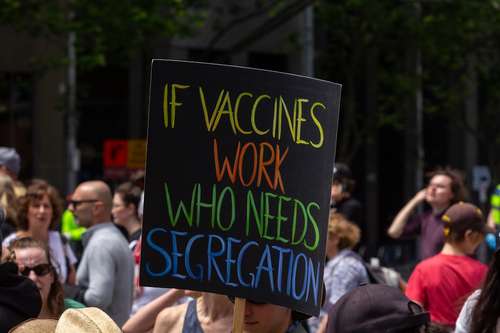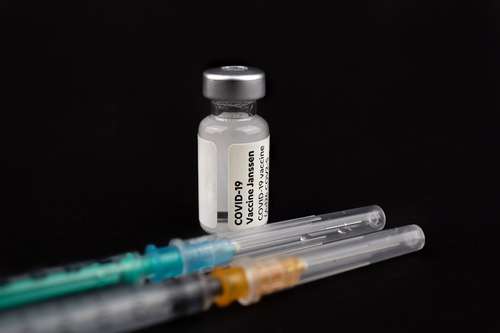Make sure you’ve got an accurate rapid antigen test result
By
Josh Piers

Although rapid antigen tests aren't perfect, there are a few things you can do to make sure you get the most accurate result possible.
Rapid antigen tests, or RATs, have become a key component of Australia's COVID-19 defense strategy.
While PCR tests remain the "gold standard" for testing, many of us have turned to quick tests for convenience or as part of a need to return to work or school.
RATs can offer results in minutes, don't require the assistance of a healthcare worker or a lab, and can help detect COVID-19 instances that would otherwise go undiagnosed.
However, they have drawbacks: they're less accurate, cost money (in contrast to PCRs, which are free), and can provide false negative or positive results.
Here are a few things to bear in mind the next time you grab a RAT:
When are fast antigen tests the most effective?
Antigens located on the surface of the virus are detected using rapid antigen testing (PCR tests, on the other hand, look for the presence of viral genetic material).
When people have symptoms, they're most accurate, and they're best used within the first seven days after they develop.
"When people are sick, they generally have more virus in their nose or mouth... so quick tests do better," infectious diseases physician and microbiologist Paul Griffin said.
RATs were most efficient at detecting the disease while patients were in their infectious phase — when they were more likely to be shedding the virus — which is why they can be a useful screening tool, according to Dr. Griffin.
However, he added that testing negative on a RAT didn't rule out the possibility of spreading COVID-19, albeit "the likelihood of being able to transmit it is significantly reduced."
"It takes a long time for the viral load to reach the point where it can be detected," said Griffith University registered nurse and disease control expert Thea van de Mortel.
According to preliminary studies, RATs are unable to identify SARS-CoV-2 until at least two days after a person has been exposed to the virus, and positive tests require an average of three days.
Professor van de Mortel advised people to wait a few days before doing a fast test if they had already been exposed to SARS-CoV-2.
RATs that require a nasal swab tended to be a little more sensitive than RATs that test saliva, according to Dr Griffin, since "usually we detect higher quantities of virus in the nose."
"Of course, having a variety of tests has advantages," he added. "For example, saliva-based tests are frequently more appropriate for kids since they're easy to administer."
Professor van de Mortel said that whatever test you take, you should carefully follow the directions and, if it's a saliva swab, avoid eating, drinking, smoking, or brushing your teeth in the 10-30 minutes leading up to it.
Can Omicron be detected with fast antigen tests?
When Omicron was discovered in late 2021, there was significant fear that quick antigen testing might be ineffective in detecting the new strain.
This is because virus mutations can sometimes change the structure of viral proteins, making test kits ineffective in detecting them.
But, according to Dr. Griffin, those early worries had not been supported by high-quality evidence.
Yet my RAT says I'm negative, but I'm sick?
If you're feeling unwell but your rapid antigen test comes back negative, you should isolate for another 24 hours and repeat the RAT or get a PCR.
"With such high rates of transmission at the present," Dr Griffin said, "if you have possibly compatible symptoms... you should treat yourself as positive until you get a negative PCR."
"There is a high rate of false negatives with rapid antigen tests."
It's possible that you took the sample too soon or wrongly, that your immune system is working overtime to keep your viral load low (despite the fact that you're infected), or that the test is insufficiently sensitive. It's also possible that you're suffering from another sickness.
It's unlikely that you have COVID-19 if you get a negative PCR test.
However, Professor van de Mortel advises that you remain alone until your symptoms subside in order to protect others from whatever ailment you may have.
"One of the amazing things about this period is that our flu cases, as well as most upper respiratory illnesses, have dropped dramatically as a result of the precautions people are taking," she said.
My RAT indicates that I am positive, but I am in good health?
A "false positive" result is far less likely than a "false negative" result – recall, certified RATs must have a specificity of 98 percent.
When infected with COVID-19, it's also not uncommon to have very minor or no symptoms at all.
If you haven't left the house in weeks or the positive result was unexpected, you may want to repeat the test 24 to 48 hours later or have a PCR test done - but stay isolated until you get a negative result.
Even if you don't have any symptoms, Dr. Griffin recommends wearing a mask and avoiding high-risk situations for a few days.
What's Your Reaction?
Share this article
Author
Related Posts

NB.1.8.1 'Nimbus' Variant Dominates 2026 Winter Surge: Why This 'Razor Blade' Sore Throat is Different

The ‘Razor Blade’ Throat: New ‘Nimbus’ COVID Variant NB.1.8.1 Dominates 2026 Winter Surge

19 States Defy CDC Vaccine Overhaul as 'Nimbus' Variant Surge Grips Nation
